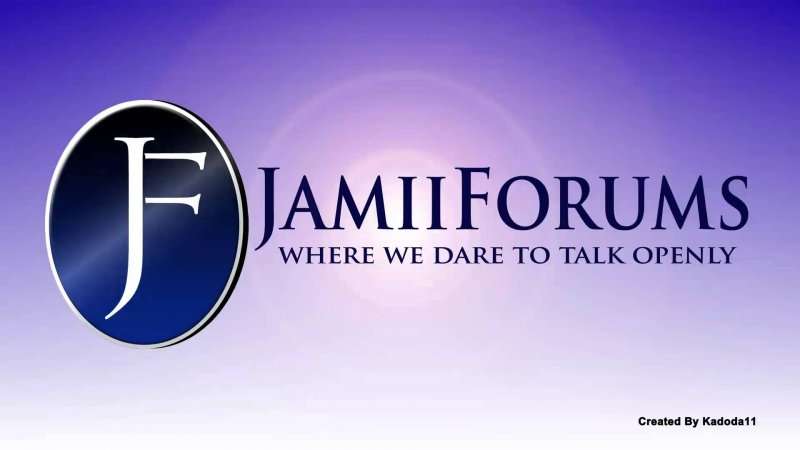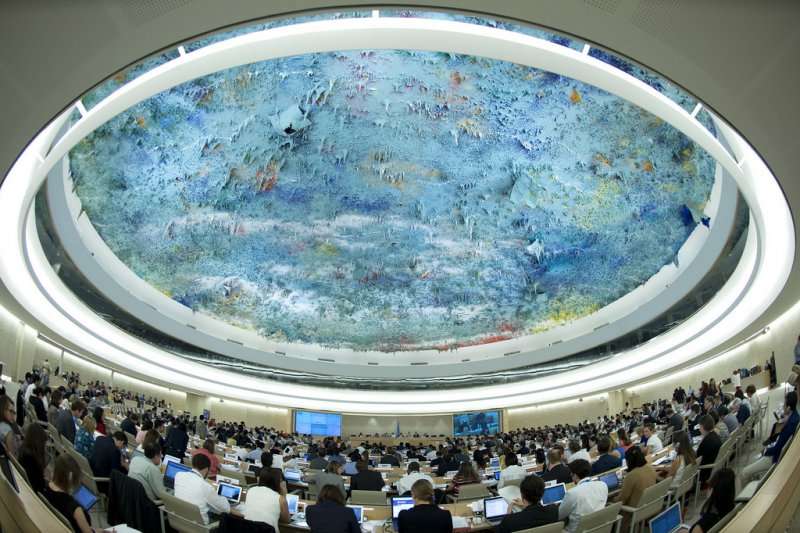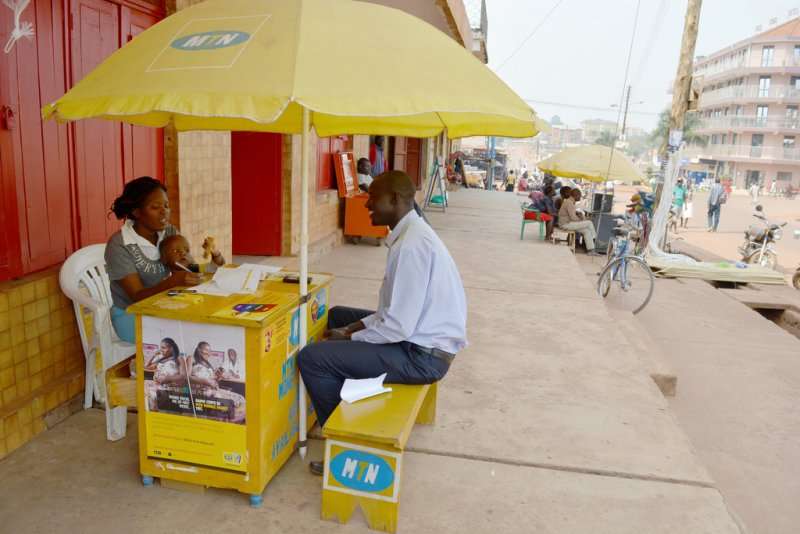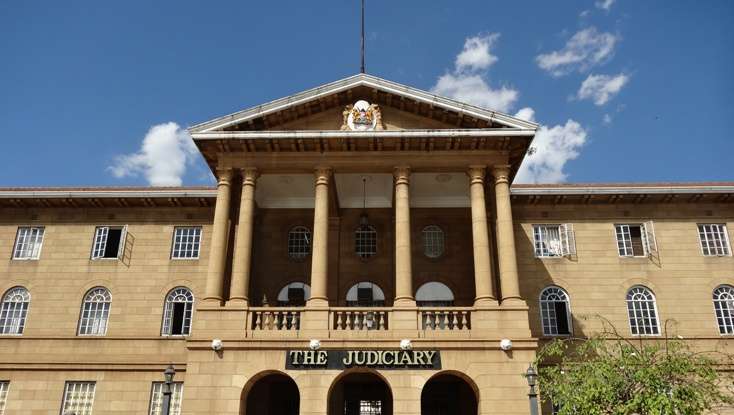By Ashnah Kalemera |
A Tanzanian court has acquitted the founders of popular online discussion platform Jamii Forums, who were charged over failure to comply with a police order to disclose the identity of two users of their platform.
The magistrate’s court at Kisitu in the capital Dar es Salaam found that Maxence Melo and Micke William had no case to answer in the case, in which the two were alleged to have obstructed investigations in contravention of Section 22(2) of the Cyber Crimes Act, 2015 by refusing to comply with an order to disclose their platform users’ data. The ruling cuts the number of cases against Melo and William to two.
Reacting to the June 1, 2018 decision, Melo stated that it was a “victory for anyone who would like to see freedom of expression flourish” in Tanzania. He said he was glad to have only two outstanding cases, having recently endured four court appearances over five days.
In December 2016, Melo was charged with three offences: two counts of not complying with a disclosure order under Section 22(2) of the Cyber Crimes Act (2015) and one count of managing a domain that is not registered in Tanzania under Section 79(c) of the Electronic and Postal Communications Act (2010). Melo was initially charged alone but William was subsequently added to the cases as a co-accused, since he is a shareholder in Jamii Media, the legal entity under which Jamii Forums is run.
Section 22(2) of the Cyber Crimes Act relates to unlawful interference with investigations and refusal to comply with an order under the Act. The penalty, upon conviction, is a fine of three million Tanzania Shillings (USD 1,300) or imprisonment for one year, or both. Meanwhile, Section 79 of the Electronic and Postal Communications Act (2010) provides for the regulation of all electronic communication numbering and electronic addresses by the Tanzania Communications Regulatory Authority (TCRA). Part C of the section mandates the authority to perform oversight role of management of .tz – the country’s code Top Level Domain (ccTLD).
The charges stemmed from Jamii Forum’s refusal to comply with police disclosure notices to reveal the Internet Protocol (IP) addresses, email and phone numbers of users, whose identities authorities sought after whistleblowing corruption scandals in the oil and banking sectors.
Initially, Jamii Media, went to court challenging the disclosure orders and specifically provisions of Section 32 and 38 of the Cybercrime Act. However, the petition was dismissed in a ruling that dealt a blow to intermediary liability rules in Tanzania.
During court proceedings in the now dismissed case, prosecutors called four witnesses including two officials from the Tanzania Police cybercrime department. Court also heard testimony from the Human Resource Manager of CUSNA Investment LTD, the company which made a defamatory report to police regarding the information disclosed by the whistleblowers. The fourth witness called by the prosecutor was the Acting Deputy Registrar of Intellectual Property at Tanzania Business Registrations and Licensing. Proceedings then stalled with the prosecution indicating that it had no further witnesses to call.
Since its enactment in 2015, state authorities in Tanzania have used the Cyber Crimes Act to arrest and prosecute individuals for expressing critical opinion. Reportedly passed in the middle of the night, the Act is one of many recent laws in Tanzania that have been criticised for disregarding free speech and access to information, among other citizens’ constitutionally guaranteed rights.
Hearings in the remaining two cases against Melo and William are scheduled to continue during June.
Internet Freedom In Africa And The Universal Periodic Review
By Ashnah Kalemera |
Human rights review mechanisms such as the United Nations Universal Periodic Review (UPR) and the Africa Commission on Human and People’s Rights (ACHPR) provide a unique opportunity to address human rights concerns in African countries.
The cooperative nature of the review mechanisms allows different stakeholders to make country submissions for consideration by the Human Rights Council (HRC) at the UN or at sessions at the ACHPR, resulting in country recommendations for action. For the UPR, the immediate outcomes of reviews can include country adoption of recommendations made by other countries. At subsequent reviews, countries are expected to state what they have done to fulfil obligations and commitments to recommendations from previous reviews, including any challenges faced in implementing the commitments.
Currently, there is limited participation by African civil society in the UPR process despite the UPR providing a framework within which activists and human rights defenders can lobby governments to promote different rights and freedoms. In particular, there is limited work by African actors to promote internet freedom through the UPR.
In the period 2014–2016, stakeholder submissions to the reviews of African countries were dominated by international organisations and human rights bodies such as Article 19, Human Rights Watch and Amnesty International. Whereas a number of national human rights commissions of the respective countries make submissions, there has been limited input from Africa-based civil society. The figure below gives an overview of the varied level of participation by Africa-based organisations in UPR stakeholder submissions of select countries on the continent. (Source www.upr-info.org)

Meanwhile, submissions remain focused on so-called offline rights including women and children’s rights, land rights, sexual rights, the death penalty, health rights, education rights as well as the rights of refugees and persons with disability. A growing but limited number of submissions are focused on both online and offline rights including on access to information, access to the internet, free speech and media freedom, freedom of assembly and association, and privacy.
Various factors play a role in the limited participation of African civil society in the UPR processes, including low awareness among organisations of the cycle periods and opportunities to make submissions or statements. Further, capacity to make individual submissions may be limited (majority of the in-country/continent-based organisation submissions in the chart above were joint submissions with international human rights organisations). This gap in skills and knowledge presents an opportunity for interventions aimed at research, training, and support for African civil society to deliver stakeholder submissions, particularly on digital rights with reference to offline rights.
There is an opportunity for in-country follow up and advocacy on recommendations – both those adopted and those deferred. Further, there is opportunity for stakeholders to organise side events at the UPR to promote dialogue and engagement not only with government representatives for countries under review but also with other governments who have progressive records on internet related rights that can contribute to related recommendations. For stakeholders not able to attend sessions in person, there in a provision to follow the proceedings remotely via live broadcast. Social media holds much promise in ensuring wider audience reach for advocacy and information dissemination – see for instance #UPR26.
Accordingly, from 2018 to 2021, CIPESA, Small Media and a coalition of regional partners will be working to support civil society organisations across Africa to engage with the UPR process through research, capacity development and advocacy. The 15 African focus countries are Angola, Ethiopia, Gambia, Kenya, Liberia, Malawi, Mozambique, Namibia, Nigeria, Rwanda, Senegal, Sierra Leone, Tanzania, Uganda and Zimbabwe.
The first engagement for the project was conducted at the Internet Policy in Africa Research Methods workshop which was held in Kampala, Uganda from February 26-March 3, 2018. Related sessions during the workshop introduced participants to core processes of the UPR and ways in which the UPR can deliver internet policy impact. Furthermore, participants were equipped with skills in research, strategic communication and advocacy through data-driven campaigns for UPR engagement.
Uncertainty Over How Uganda’s New Social Media Tax Will be Collected
By Juliet Nanfuka |
On May 30, 2018, Uganda’s parliament passed the Excise Duty (Amendment) Bill 2018, which will see users of Over-The-Top (OTT) services that include messaging and voice calls via Whatsapp, Facebook, Skype and Viber pay a mandatory fee of UGX 200 (USD 0.05) per day of use. In another move that could hit affordability, stifle innovation, and undermine the role digital technologies play in socio-economic transformation, the amendment will also introduce a one percent fee on each mobile money transaction. However, it remains unclear how the tax on social media use would be collected.
The amendment bill was first introduced last April and was met with criticism over the new taxes, which many observers believe would make Information and Communication Technologies (ICT) inaccessible to majority of Ugandans. The taxes were proposed in response to a letter president Yoweri Museveni wrote to the finance ministry wherein he stated that the government needed resources “to cope with the consequences” of social media users’ “opinions, prejudices [and] insults”. Without mentioning mobile money, Museveni proposed a levy of UGX 100 (USD 0.025) per day per OTT user, but proposals by the finance ministry, since passed by parliament, doubled this figure.
Further, days after parliament passed the amendments bill, the finance minister reportedly stated that the tax rate on mobile money transactions should be 0.5% and not 1% and suggested that the bill could need revisiting.
Finance minister tells the press that he is surprised the 1% tax on mobile money slipped through parliament. He adds he was out of the country when it did. He says it should be 0.5% #NBSUpdates
— Mujuni Raymond (@qataharraymond) June 4, 2018
As of September 2017, Uganda had an internet penetration rate of 48%. Meanwhile, there were 23 million mobile money subscribers in a country of 37.7 million people, and their more than 340 million transactions during the third quarter of 2017 alone totalled UGX 18.1 trillion (USD 4.7 billion).
Mobile money has been a primary avenue of financial inclusion particularly for the unbanked. According to the Bank of Uganda, in 2015, only 16% of the population had a bank point of service within one kilometre of a home, whereas 54% of the population had a mobile money point of service within one kilometre.
Meanwhile, social media has served as many users’ initial entry point to internet use in many developing countries such as Uganda. This is among the reasons why OTT packages have been popular with telecommunications companies as tools to attract more clients. Introducing taxes on the use of these platforms could therefore negatively impact local content development and civic participation tools that rely on these services.
The proposals passed by Uganda’s parliament also include raising tax on airtime on cellular, landline and public payphones from 5% to 12% and the increase on the tax on mobile money transfers from 10% to 15%. .
The passing of the bill attracted various reactions on Twitter:
The Act will come into force starting 1st of July 2018 as per the bill. Does this mean that the enabling policies will be ready? pic.twitter.com/EmjOahnAba
— Kemigisa (@JackyKemigisa) May 31, 2018
The "WhatsApp tax" is causing a lot of confusion in Uganda, where people are wondering how exactly it will be implemented: https://t.co/BUUDKAYEFF pic.twitter.com/8iH7rJnMBS
— BBC News Africa (@BBCAfrica) May 31, 2018
In 2016, social media and mobile money services were shut down twice during the electioneering period.
One more thing, @UCC_Official should never shut down social media during elections because we are going to be paying #SocialMediaTax .
— Iribagiza David✌🏿 (@Owomunshozi) May 31, 2018
As a result of the shutdown of social media platforms, Virtual Private Networks (VPNs) became popular as users sought alternative avenues to remain online. There were no alternatives for mobile money users but the impact of the shutdown was felt by mobile money service providers such as the Airtel Uganda mobile money platform which at the time was used by around 650,000 unique users per day and processed around 30 billion Ugandan shillings (USD 8.8 million) according to FSD Uganda.
At a private sector dialogue hosted by the Collaboration on International ICT Policy in East and Southern Africa (CIPESA) a day after the passing of the bill, participants noted that the move to tax mobile money services could potentially force users to explore other alternatives for transactions, including reverting to cash or to new financial transaction models such as blockchain which is emerging as a potential alternative avenue for financial transactions in Uganda.
I never used Mobile Money that much until my bank introduced a system that allowed me to send money from my account to my phone. I have a trusted boda guy who can deliver cash anywhere so I will transact less generally with the new tax. #MMTax
— Grace Natabaalo (@Natabaalo) May 31, 2018
Uproar in Uganda as the gov passes legislation to tax mobile money transactions at 1% and social media usage at 200 USh per day! Those with less of course get hit the hardest paving a way for crypto adoption #Blockchain
@DalaFoundation #Accessforall https://t.co/ATfEsMcdiT— Norbert Haguma (@nhaguma) June 4, 2018
According to a 2017/18 Uganda National Information Technology Survey, social media platforms including OTT services are some of the popular avenues through which civic engagement has been pursued by the state. It remains to be seen how access to government services will be incorporated in the new tax model.
As we debate social Media taxes lets not forget Govt as well is going to pay social Media taxes thru its MDAs/officers bse they also use social platforms 4 some their work & govt is likely to be the biggest contributor to the social media taxes. #NBSMorningBreeze#SocialMediaTax
— Sarah Kyobe N. (@kyobesarah) June 1, 2018
With the taxation expected to come into effect as early as July 1, 2018, uncertainty remains over whether, if signed into law by the president, the tax would be executed given the limited public consultation and the absence of guidelines.
Sections of Kenya’s Computer Misuse and Cybercrimes Act, 2018 Temporarily Suspended
By Juliet Nanfuka |
Barely two weeks after the presidential assent to the Computer Misuse and Cybercrimes Act, 2018, a High Court judge has issued a conservatory order suspending the entry into force of 26 sections of Kenya’s contentious Computer Misuse and Cybercrimes Act, 2018. The order by Judge Chacha Mwita, suspending the sections until July 18, follows a petition filed by the Bloggers Association of Kenya (BAKE), which challenged the law for contravening constitutional provisions on freedom of opinion, freedom of expression, freedom of the media, freedom and security of the person, right to privacy, right to property and the right to a fair hearing.
In the order issued on May 29, the judge certified BAKE’s petition as urgent, and stated that respondents (who include the Attorney General, the Speaker of the National Assembly, the head of the National Police Service, and the Director of Public Prosecutions) be served immediately. The respondents would have seven days from receipt to file written submissions. Hearing of the petition is scheduled for July 18, 2018.
Although the conservatory order only stalls the enforcement and could be lifted or maintained thereafter, it nonetheless represents a win for digital rights advocates in Kenya, as they have in the interim satisfied the judge that there is an arguable case to be made against the constitutionality of the recently enacted law. The order also marks another landmark ruling in the litigation towards respect and realisation of digital rights across Africa.
According to the order, the suspended sections are: 5, 16, 17, 22, 23, 24, 27, 28, 29, 31, 32, 33, 34, 35, 36, 37, 38, 39, 40, 41, 48, 49, 50, 51, 52 & 53.
Here are the orders by Justice Chacha Mwita barring the coming into effect of 26 sections of the Computer Misuse and Cybercrimes Act, 2018. pic.twitter.com/UvxAe9vTJG
— BAKE Kenya 🇰🇪 (@BakeKenya) May 30, 2018
Various organisations criticised the bill prior to its assent on May 16, 2018 calling it unconstitutional. Among the organisations were the Kenya ICT Action Network (KICTANET), Article 19 Eastern Africa, BAKE and the Centre to Protect Journalists (CPJ) who deemed numerous sections unconstitutional and detrimental to Kenyan citizens’ digital rights. They said it infringed on the privacy of individuals, freedom of expression, speech, opinion and access to information online.
Kenya already has a history of stifling online critics of the state and state actors, as echoed by James Wamathai, the Director of Partnerships at BAKE. In a statement, he said: “In the past several years, there have been attempts by the government to clamp down on the freedom of expression online. This Act is a testament of these efforts, especially after other sections were declared unconstitutional by the courts.
Among the prevailing concerns on the law is the use of vague language on issues such as “false” or “fictitious” content and false publications in Section 22 and 23, accompanied with heavy obligations on users to verify truthfulness or untruthfulness of information before disseminating. As per section 12, failure to comply would result in a fine of five million Kenyan shilling (USD 50,000), up to two years in prison, or both.
The court order comes on the heels of the two judgments (Okiya Omtatah Okoiti v The Communication Authority of Kenya and 3 others Constitutional Petition No. 53 of 2017 and Kenya Human Rights Commission v Communications Authority of Kenya and 3 others no. 86 of 2017) by the Kenya High Court in which the petitioners successfully challenged the installation on mobile phone networks of a communication surveillance system dubbed Device Management System (DMS), by the Communications Authority (CA) Kenya (CA). The petitioners argued that, through this system, the authority would have undue access to the communications of citizens.
As more countries in Sub-Saharan Africa develop technology related laws, it is fundamental that the laws uphold human rights standards prescribed at global and regional levels, including in the International Covenant on Civil and Political Rights (ICCPR), the African Charter on Human and Peoples Rights (ACHPR), and African Union Convention on Cybersecurity and Personal Data Protection. However, recent developments such as has been witnessed in East Africa appear to prioritise the criminalisation and penalisation of internet use rather than encourage its adoption as a tool for greater access to information, and for expanding free expression and civic engagement.
Kenya’s neighbours Tanzania and Uganda have this year taken actions detrimental to digital rights. In Uganda, social media taxes that could be introduced in July 2018 threaten internet access and affordability while in in Tanzania, online content producers will have to pay over USD 900 to register with the state for permissions to maintain their platforms, according to new regulations.
Let Us Bring People To The Centre Of The Digital Future
Joint Call |
The Collaboration on International ICT Policy for East and Southern Africa (CIPESA) is part of a call urging G20 countries to place citizens and consumers at the centre of decisions around the digital society.
The call states, “For the digital society to be open, safe, and empowering for everyone, policies for the digital age must be trusted and trustworthy – putting the interests of people and their rights first. Governments should intensify efforts to assure that the Internet is not fragmented and that people and their rights are at its centre.”
See the complete document here.





